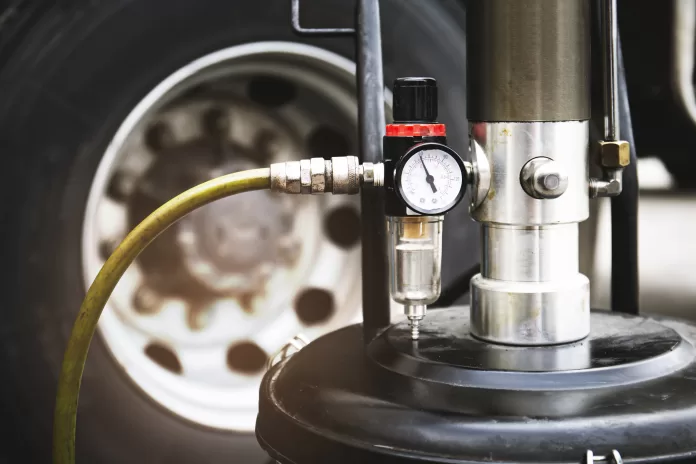As a trucking fleet owner, you understand the critical role that efficient operations and safety play in the success of your business. From ensuring timely deliveries to keeping the vehicles in top condition. This is where fleet management comes into picture. Fleet management involves overseeing and optimizing various aspects of your trucking fleet, including maintenance, fuel consumption, driver performance, and safety.
Competent fleet management is fundamental for maximizing profitability and maintaining a competitive edge in the trucking industry. By implementing effective strategies and leveraging advanced technologies, fleet managers can streamline operations, minimize costs, and enhance overall performance. One such technology that has revolutionized the trucking industry is tire monitoring systems.
Challenges faced by trucking fleets
Running a trucking fleet comes with its fair share of challenges. From rising fuel costs to driver shortages, fleet managers constantly face obstacles that can impact efficiency and profitability. One of the major challenges faced by trucking fleets is tire-related issues. Tire blowouts, underinflation, and uneven wear not only lead to costly breakdowns and delays but also pose significant safety risks on the road.
When truck tires are not properly managed, they can result to a decreased fuel efficiency, increased maintenance costs, and decreased vehicle performance. Monitoring tire pressure and condition manually can be time-consuming and prone to error. Besides, detecting tire issues in real-time becomes nearly impossible without a robust tire monitoring system in place.
Benefits of using tire monitoring systems in trucking fleets
Tire monitoring systems have emerged as a game-changer in the fleet industry, addressing the challenges faced by fleet managers and revolutionizing the way tires are being managed. These systems utilize advanced sensors and technology to continuously monitor tire pressure, temperature, and overall condition in real-time.
By providing accurate and timely data, tire monitoring systems offer a range of benefits for trucking fleets. One of the key benefits of tire monitoring systems is enhanced safety. By alerting drivers and fleet managers about potential tire issues, such as low pressure or excessive heat, these systems can help prevent accidents caused by tire failures. Real-time monitoring enables proactive maintenance, reducing the risk of blowouts and other tire-related incidents on the road.
Additionally, tire monitoring systems also contribute to improved efficiency. By ensuring optimal tire pressure, these systems help maximize fuel efficiency, reducing the overall fuel consumption. Properly inflated tires also result in reduced tire wear and promote a longer tire life, saving on expensive replacements. Moreover, by detecting tire issues early on, fleet managers can schedule maintenance and repairs proactively, minimizing downtime and maximizing vehicle availability.
The role of tire monitoring systems in maximizing efficiency and safety
Tyre Pressure Control Systems play a pivotal role in maximizing efficiency and safety in trucking fleets. By continuously monitoring tire pressure and condition, these systems ensure that tires are always properly inflated and in optimal working condition. “Tire-related issues can be associated with high costs and downtime for fleets. Implementing a Tyre Pressure Control System (TPCS) such as a Tyre Pressure Measuring System (TPMS) or the more advanced, Tyre Pressure Refill System (TPRS) is crucial to minimize risks,” comments Andre Gerken, General Manager for Celerity DRS.
“Early detection of any tire related issues is essential. This allows the driver to react before any major damage occurs, which in turn could affect driver uptime, pose a risk to the driver or to other road users,” recommends Gerken.
Properly inflated tires reduce rolling resistance, which in turn reduces fuel consumption. By maintaining optimal tire pressure, fleet managers can significantly reduce fuel costs and enhance overall profitability.
“With the right tire pressure, you can ensure the maximum efficiency and safety for fleets by providing early detection of issues, optimising fuel efficiency, extending tire lifespan, enhancing safety, and ensuring compliance with regulations,” says Gerken.
Moreover, tire monitoring systems help prevent tire-related breakdowns and accidents on the road. By alerting drivers and fleet managers about potential tire issues, these systems enable proactive maintenance and repairs. This minimizes the risk of tire blowouts, which can lead to accidents, delays, and costly repairs. “Investing in TPCS can lead to significant cost savings, improved operational performance, and a safer driving environment for all,” endorses Gerken.
Features to consider when choosing a tire monitoring system
When choosing a tire monitoring system for your trucking fleet, it is essential to consider several key features:
• The system should provide accurate and reliable tire data. Sensors should be capable of measuring tire pressure and temperature accurately, even under extreme conditions. They should offer real-time alerts and notifications, to ensure timely action taken.
• Ease of installation and integration is another important feature to consider. Look for systems that are easy to install and can be seamlessly integrated with your existing fleet management software. This will enable efficient data collection, analysis, and reporting, saving you time and effort.
• Remote monitoring capabilities are also desirable, as they allow you to access tire data from anywhere and at any time. This is particularly useful for fleet managers who need to monitor multiple vehicles across various locations. With remote monitoring, you can stay updated on tire performance and take proactive measures to prevent potential issues.
• Consider the scalability and compatibility of the tire monitoring system. Ensure that the system can accommodate your current fleet size and has the flexibility to grow with your business. Compatibility with different types of tires and vehicles is also crucial, as it ensures the system can be deployed across your entire fleet.
The future of tire monitoring systems in the trucking industry
As the trucking industry continues to evolve, tire monitoring systems will play an increasingly important role in fleet management. Advancements in technology will likely lead to even more sophisticated systems that offer enhanced features and capabilities. By embracing these advancements and implementing tire monitoring systems, trucking companies can revolutionize their operations, maximize efficiency, and ensure the safety of their drivers and consignments. Take the leap and discover how tire monitoring systems can revolutionize your fleet today!
By Dorcas Kang’ereha




